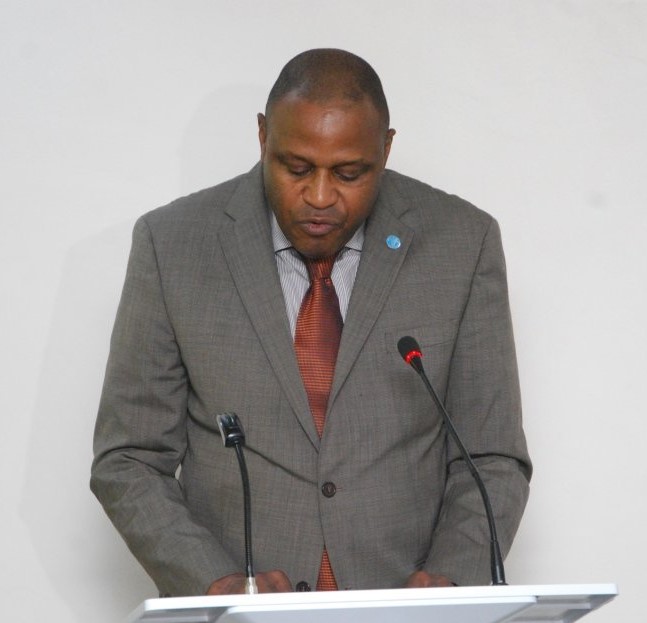The Food and Agriculture Organisation (FAO) says the development of rural areas will facilitate Nigeria’s efforts to attain the Sustainable Development Goals (SDGs) before 2030.

Mr Ahmed Matane, Assistant FAO Country Representative (Programme) for Nigeria, said this in an interview with News Agency of Nigeria (NAN) on Tuesday, March 20, 2018 in Abuja.
The SDGs, as adopted by the United Nations (UN), seek to end poverty and hunger; realise the human rights of all; achieve gender equality and the empowerment of all women and girls; and ensure the lasting protection of the planet and its natural resources by 2030.
Matane said that pragmatic efforts should be made to provide adequate resources for rural development projects across the country.
He said that this was because more than half of the Nigerian population, the vast majority of people in developing countries and other parts of the world lived in rural areas, while their source of livelihoods largely depended on agriculture.
He said that, in spite of the reality, it was so unfortunate that most of the people in the rural areas were still very poor and they depended on rudimentary agricultural practices.
“They live in isolated and often inhospitable places, with little access to the resources they need to improve their agriculture.
“The rural populace can only boast of less than 10 per cent of the country’s infrastructure and other indices of development.
“Many lead their lives barely at subsistence level and due to the numbers of the people, there is a very strong case for the need to give high priority to rural development,’’ he said.
Matane noted that rural development in Nigeria had been a fundamental problem because over the years, the development of rural areas had been neglected because of non-sustainable policies on rural transformation.
“This is responsible for the poor state of affairs among rural dwellers in Nigeria,’’ he added.
The FAO official said that it was so unfortunate that successive governments lacked the political will to develop the rural areas and virtually concentrated on urban development and renewal programmes, to the detriment of the rural areas.
Matane said that as a result of the development, it had become somewhat imperative to explore novel ways by which the issue of rural underdevelopment in Nigeria could be resolved via an integration approach.
He, however, stressed that emphasis must be placed on promoting rural productive activities, supporting human resources development and improving rural infrastructure.
He said that the rural development strategies should also include enhancing the people’s income, ensuring the protection of the environment, promoting gender responsiveness and ensuring adequate care for the vulnerable groups.
Matane said that agriculture was a vital part of any national economy, adding that the development of agriculture was critical to the development of the country’s economy as a whole.
He said that since most of the rural populace relied on agricultural activities for their livelihoods, practical efforts should be made to develop the environment of the rural areas and make it conducive to agricultural and livelihood activities.
He noted that people in the rural areas did not have hitch-free access to good water, health care and educational facilities, while the roads in the areas were in deplorable conditions.
“In some cases, the rural communities are cut off; no electricity, in short, no social amenities,’’ he added.
Matane said that all these inhibiting factors often combined to reduce the productivity of people in the rural communities.
“In 2017, FAO, during the celebration of the World Food Day, purposely chose the theme: ‘Change the future of migration: Invest in food security and rural development’,’’ he said.
He said that the theme was apt because if tangible investments are made in food security and rural development projects; the outcome would be increased agricultural productivity, reduced migration and enhanced food security.
Matane reiterated that if the government invested in rural development, it would change the economic dynamics and improve the nation’s economy.
“If the rural area is good enough, nobody will ever think of rural-urban migration,’’ he added.
The FAO official said that in spite of the agricultural and rural development programmes that were initiated in the country, the goals were not accomplished because of some constraints.
“For instance, the failure of the nation to fully reap the benefits of the integrated rural development approach, which was adopted by successive governments, has been obvious.
“Regarding physical facilities, social opportunities, quality of living and overall score, standards in the rural areas are still very low, in comparison with those of the urban areas,’’ he said.
Matane said that the development of rural areas must remain a priority to policy makers and development experts, while policies and programmes, aimed at improving the socio-economic well-being of the rural poor, must be initiated and pursued.
“It is so unfortunate that the rural-urban gap is still very wide and there is urgent need to bridge the gap with a healthy and dynamic agricultural sector as an important tool of rural development, generating strong linkages to other economic sectors,’’ he said.
Matane, nonetheless, stressed that apart from meeting the basic needs of the citizens in the rural neighbourhoods, investments must be linked to the potential to raise the people’s productivity and incomes.
He also underscored the need to address the vulnerability of the rural poor to the economic crisis as well as climate change and water shortage.
“The success of sustainable rural development activities depends on developing and implementing comprehensive strategies for dealing with climate change, drought, desertification and natural disasters,’’ he added.
